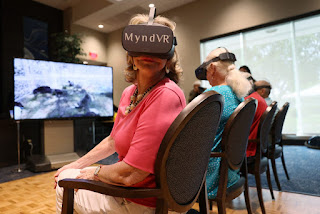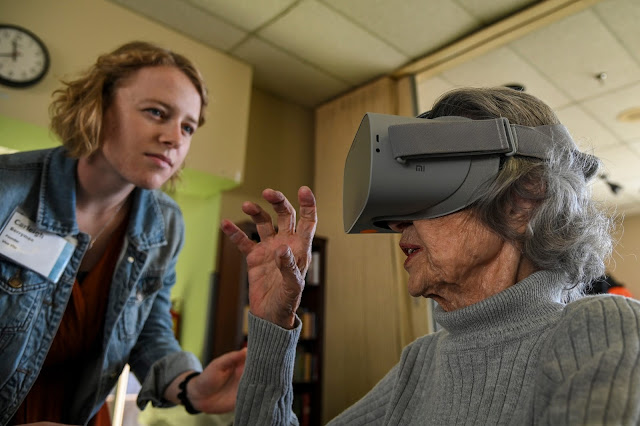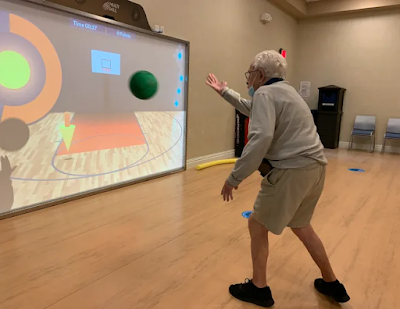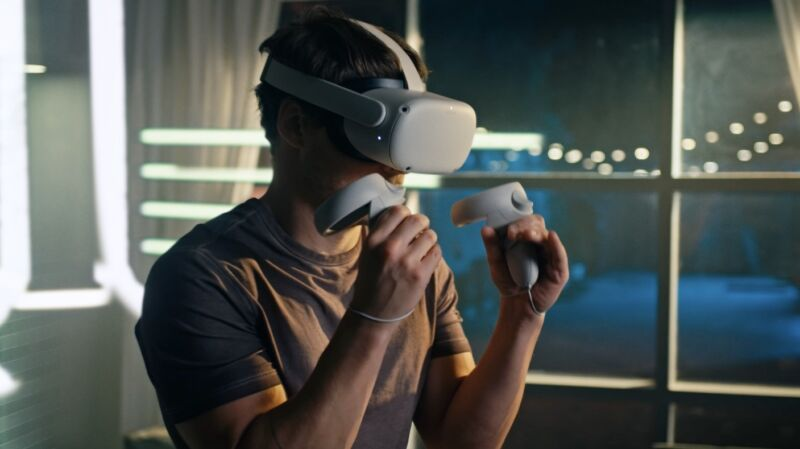 Staying connected is important for anyone, but especially for those with early staged of dementia and Alzheimer's disease, virtual reality may be one way to provide a close emotional connection in the absence of physical connection. Especially during the pandemic, virtual reality could be one means to keep older family members connected to the rest of the family.
Staying connected is important for anyone, but especially for those with early staged of dementia and Alzheimer's disease, virtual reality may be one way to provide a close emotional connection in the absence of physical connection. Especially during the pandemic, virtual reality could be one means to keep older family members connected to the rest of the family. As reported at SXSW, using virtual reality to recall memories and names, and places it might not reverse demential or Alzheimer's but it can slow the progression.
'We're moving to the era of prescription digital medicines'









 Paying for a virtual workout with a trainer doesn't have to cost as much as a Peloton bike and monthly fee. For about $10/month and an Oculus Quest 2, you can enjoy different FitXR workouts ranging from HIIT to boxing focused sweat sessions with your favorite trainer.
Paying for a virtual workout with a trainer doesn't have to cost as much as a Peloton bike and monthly fee. For about $10/month and an Oculus Quest 2, you can enjoy different FitXR workouts ranging from HIIT to boxing focused sweat sessions with your favorite trainer. 








